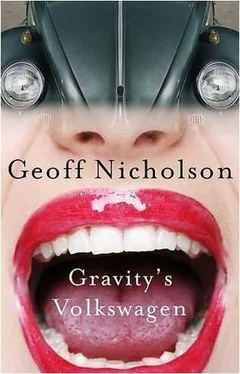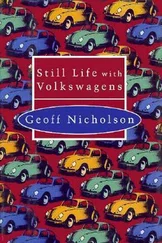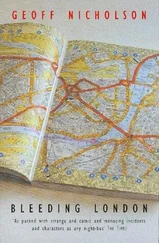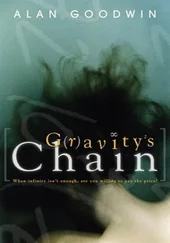Barry was also keen to talk with me about more general things, to ask how life was back in England. He’d been away a long time. Were there problems with immigration? Was there anywhere to park your car? Would an automotive freak show such as Motor-head Phil’s even be conceivable in the old country? I answered yes, no and no, and he took some satisfaction from this. He reckoned he was well out of it.
I was now treated with a lot of respect, maybe even affection, by Motorhead Phil and his crew. It was hard to live with at first. I didn’t want to take credit for something I didn’t think I’d done — Barry and Motorhead Phil were far more responsible than I was for creating Leezza’s new act — but endlessly rejecting and shrugging off the gratitude of people came to seem downright ungracious, so I decided to accept any praise and thanks that came my way. If they wanted me to be ‘one of them’, to give credit where it wasn’t quite due, I was prepared to go along with it. I was even consulted about various new aspects of the performance and did come up with at least one creditable idea.
At my suggestion a hole was cut in the roof of Barry’s Beetle, not big enough to constitute a sunroof, and definitely not big enough for him to climb out of, but big enough for the spectators to see more of him, and for him to see more of them and wave a high-five or a clenched-fist salute when he felt the urge. As it happened, it also allowed him to see more of his impending doom, Leezza’s flying Beetle passing inches above his head. He liked that, as did the crowd.
That word ‘crowd’ was justifiable now. From the few waifs and strays who’d been at that first show, the audience was growing exponentially. They weren’t the classiest or the most sophisticated audience you could imagine, in fact they were very much the way you’d imagine the people who’d attend an automotive freak show would be.
There were many children, many beer bellies, many incomplete sets of teeth. The folks were loud and good-natured and very glad to be there. Of course, there was something grotesque about their enthusiasm. They were coming in hope of seeing a disaster, perhaps a death, and no doubt every night some of them went home disappointed when Barry didn’t die. But even for them, there was always the opportunity of coming back another day when the act would be repeated and the outcome might be more to their liking. Repeat business was the name of the game, Motorhead Phil told me, and business was good. Money was being made. Motorhead Phil’s Famous Automotive Freak Show began to get a reputation. It certainly got some publicity.
Stories were written in the local papers. There was word of mouth. There was a powerful online following. A TV news crew came along and filmed parts of the show and interviewed Barry, Leezza and Motorhead Phil. Barry did indeed prove himself to be, as he’d have put it, media savvy. He said that the idea for the jump had come from an eccentric, reclusive (and unnamed) English novelist. Everyone seemed to think that added a touch of class and mystery, and I was very glad to remain unnamed.
Barry also said, and this certainly had publicity value, though personally I thought it was pretty tacky, that there was a deeply sexual aspect to all this. The Beetle represented the phallus, the flight through the air was arousal, the fall to earth and his death was the orgasm. That went down a storm.
On the other hand, another strand of publicity was rather sneery and condescending. There was some tut-tutting about Barry putting his life on the line in this way. “Are we no better than the ancient Romans?” one article asked. We were not, was the conclusion. And some observers reckoned the whole thing was a sham, that when it came right down to it, if anything went wrong, there was some special release mechanism that would allow Barry to escape and save himself.
There was not — of course — and Barry expressed dismay that the public had become so cynical, although cynicism struck me as the least of their problems. Mostly however Barry was grimly, bravely cheerful. You couldn’t have said he was any happier or any less depressed but he was clearly comforted by the belief that his end was in sight. Sooner or later the Volkswagen Beetle in the sky would cease defying gravity, would fall to earth and put him out of his misery.
For her part, Leezza did her level best to make sure it was later rather than sooner. I saw a lot of her in this period. We talked every night after the show. Sometimes she took off the wig and the false breasts, and sometimes she didn’t. I was happy either way, and I found her just as attractive in both guises. She was undoubtedly very fanciable and I duly fancied her, but I never really thought I was ‘in with a chance’. It was becoming increasingly obvious that we just weren’t compatible.
As a writer you try to have as broad an empathy as you can. If you want to make your characters convincing you try to understand the murderer as much as you try to understand the victim, the Nazi as much as the Nazi hunter. Naturally, you don’t always succeed, and in a way you don’t always want to. To understand all may be to forgive all, and there are certain things you don’t want to forgive. And in any case there are always limits to anyone’s understanding.
For instance, I thought I could well understand why Barry might withdraw from the world, why a person might reduce his life to what could be contained in a Volkswagen Beetle. It made a sort of sense. I could even, without sharing the sentiment, understand why a man might want to end it all.
In a theoretical way I could also understand why somebody might devote his life to becoming a strong man in an automotive freak show and throwing Volkswagen engines around. If you knew you had that potential inside you, you might well decide you had to take it as far as you could.
What I couldn’t understand (and I certainly tried) was what might make you dedicate yourself to propelling a Volkswagen Beetle, albeit a highly modified one, through the air, for the benefit of some promiscuous crowd. You might not be defying the laws of nature or physics because, as Leezza had explained, that wasn’t possible, but you were definitely offending against the strictures of safety and common sense. Why would you do that? The fact was, in the end, I found Leezza, her life, her desires, just plain incomprehensible.
Every time I saw her she was working hard, solving equations, creating animations on her laptop, sometimes just doodling on paper. She would draw parabolas, perfect patterns of rising and falling bodies, Volkswagen Beetles at rest and in motion, that in truth bore very little resemblance to the jumps I was watching every night.
She was also involved with the constant retuning and rejigging of her Beetle, changing its power-to-weight ratio, its gearing, its aerodynamics, the suppleness or otherwise of its suspension. The technical aspects of all this were well beyond my comprehension, whether in trajectory physics or motor mechanics, but I had every reason to believe Leezza knew what she was doing, and the proof of this was there to be seen every night. The line of Beetles grew longer but her jumps got longer still.
Even so, she was also achieving the other part of her mission; it did all look a lot less easy than it once had. There was something more serious and earnest about the way she drove the car. The take off was more violent, the jump less elegant, the landing was sometimes scrappy and barely controlled. It added to the spectacle, and it made the spectators realise that something difficult and dangerous was going on, that something was really at stake, but it also made it even harder for me to watch. At the end of the evening, when the freak show and the jumps were completed, I would stagger back to my trailer at Idle Palms in a state of exhaustion, and fall asleep the instant I got into bed, knowing that the next day I’d get up and do it all over again.
Читать дальше












